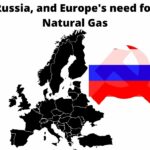As we might expect, those who work in the Oil Industry see Fracking differently than those of who are alarmed about its risks. Fracking, aka hydraulic fracturing, is thought to be poisoning groundwater, causing earthquakes, and causing more methane releases at well-heads. Additionally, fracking helps us all to stay addicted to fossil fuels when we would all be better off to abandon their use.
The Oil Industry clearly wants to stay in the business of selling oil and natural gas products. That means it’s the job of Oil Industry Executives to ensure the market is happy to keep buying fossil fuel derived products. Sometimes the exec’s blatantly say so in the public.
It’s useful for our understanding of the forces which keep us addicted to fossil fuels to look through their point of view.
On the Natural Gas Intel blog, it’s reported that Noble Energy’s CFO, Ken Fisher, talked at the BakerHostetler Shale Symposium in Houston about the oil and gas industry’s role as the “fundamental driver of the U.S. economy”.
As an industry insider speaking at a conference about hydraulic fracturing, his remarks were focused on what the industry needs to do in the context of the controversy around fracking.
“There are significant anti-fracking efforts with sophisticated campaigns, and in my view it is not just about fracking but about opposing fossil fuels,” said Fisher. He reportedly went on to note that the industry has to do “a lot of engagement” to make the case for safe, sustainable, production of natural gas and oil.
I think he doesn’t understand what the word “sustainable” means. Production of fossil fuels can never be “sustainable”.
To the ends he proposes, Noble Energy is training its employees in public outreach and lobbying: “We are trying to make sure information is available and we have trained more than 100 of our employees in Colorado to be what we call ‘ambassadors’; we are giving them economic and technical information,
along with communication skills to be out on the front lines. Last year there were five ballot measures to ban or restrict fracking and this year we think there will be statewide measures to either address fracking, limit oil and gas activity or change setback rules”
Polling conducted by Noble Energy has found there’s a significant number of people opposing fracking. Yup.
But he suggests those who are opposed to fracking simply don’t understand what the industry is actually doing. Hence, the need for the industry to educate the public. “Our sense is as we have watched the polling data that the more information you give people on the ground, the better chance we have to impact this debate. The people most impactful on this discussion are people in the industry who talk to their neighbors. The message we have given our employees is that ‘we need you’ to be a spokesperson on this.”
Additionally, Noble Energy is backing a front group, Coloradans for Responsible Energy Development (CRED).
Source: Natural Gas Intel![]()
- Highway design could decrease death and injury risk, if “we” chose smarter designs - March 28, 2015
- GM really did trademark “range anxiety”, only later to abandon that mark - March 25, 2015
- US Government releases new regulations on hydraulic fracturing, that some call “toothless” - March 20, 2015
- Tesla Motors magic pill to solve range anxiety doesn’t quite instill range confidence - March 19, 2015
- Update on Galena IL oil train – 21 cars involved, which were the supposedly safer CP1232 design - March 7, 2015
- Another oil bomb train – why are they shipping crude oil by train? – Symptoms of fossil fuel addiction - March 6, 2015
- Chevron relinquishes fracking in Romania, as part of broader pull-out from Eastern European fracking operations - February 22, 2015
- Answer anti- electric car articles with truth and pride – truth outshines all distortions - February 19, 2015
- Apple taking big risk on developing a car? Please, Apple, don’t go there! - February 16, 2015
- Toyota, Nissan, Honda working on Japanese fuel cell infrastructure for Japanese government - February 12, 2015





-WebPageCrop.jpg)







